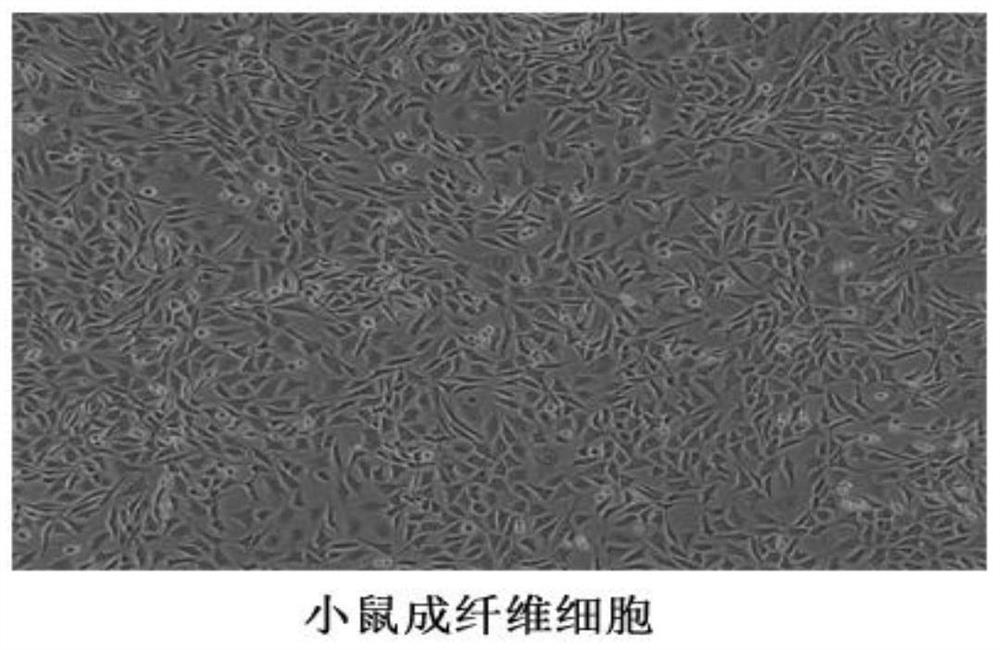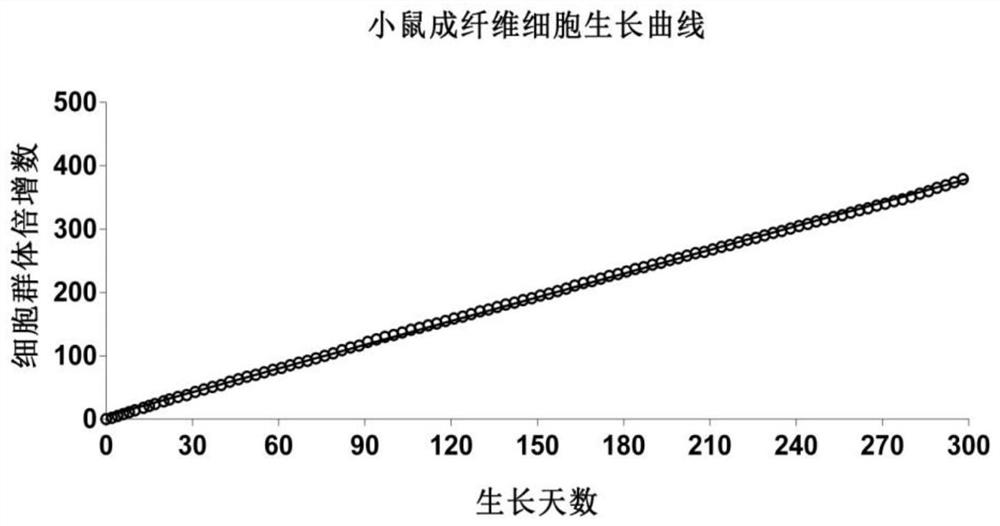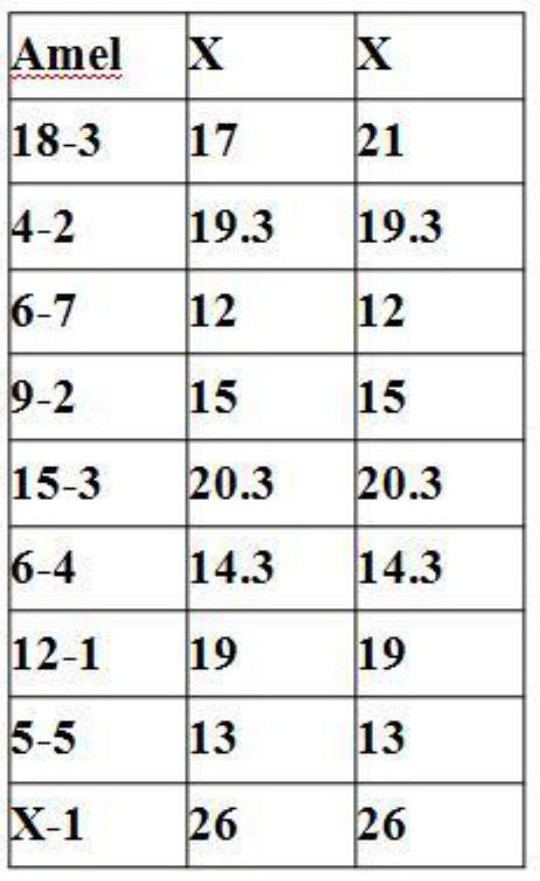A kind of mouse fibroblast and its use
A fibroblast and mouse technology, applied in the field of cell biology, can solve the problems of mammalian cell misidentification and cross contamination
- Summary
- Abstract
- Description
- Claims
- Application Information
AI Technical Summary
Problems solved by technology
Method used
Image
Examples
Embodiment 1
[0100] [Example 1] Primary isolation culture and subculture of mouse fibroblasts
[0101] Including the following steps:
[0102] (1) 16-18 day old Swiss embryonic mice were taken, and normal embryonic dorsal skin tissue was collected.
[0103] (2) Wash the isolated tissue samples with 95-100% (v / v) ethanol, then wash 3 times with PBS (0.01M, pH7.4), and then put the tissue samples into sterile culture medium containing pre-cooled PBS In a dish, mince the tissue with dissecting forceps and scissors.
[0104] (3) Digest the chopped tissue sample with digestive juice; preferably, the digestive juice is HL culture medium containing collagenase and dispase.
[0105] (4) The digested tissue was centrifuged at 1000 rpm for 5 minutes to remove the supernatant, and the cell pellet was resuspended in 0.25% (mass volume ratio) trypsin-EDTA for digestion.
[0106] (5) Add DMEM medium containing 10% (v / v) FBS, and centrifuge at 1000 rpm for 5 minutes to remove the supernatant.
[0107...
Embodiment 2
[0113] [Example 2] Genotyping analysis and identification of mouse fibroblasts
[0114] Including the following steps:
[0115] (1) Mouse fibroblasts (1×10 6 ), wash the cells twice with 1×PBS, digest the monolayer cells with 0.05% trypsin-EDTA for 30s, and neutralize the digestion reaction with 10 mL of complete DMEM;
[0116] (2) Centrifuge at 10,000 rpm for 1 min, pour off the supernatant, add 200 μL buffer GA (cell / tissue genomic DNA extraction kit DP304, Tiangen Company), and shake until completely suspended;
[0117] (3) Add 20 μL Proteinase K solution and mix well;
[0118] (4) Add 200 μL buffer GB (cell / tissue genomic DNA extraction kit DP304, Tiangen Company), fully invert and mix well, place at 70°C for 10 min, and briefly centrifuge;
[0119] (5) Add 200 μL of absolute ethanol, shake and mix well for 15 seconds, and briefly centrifuge;
[0120] (6) Add the obtained solution and the flocculent precipitate into an adsorption column (cell / tissue genomic DNA extract...
Embodiment 3
[0128] [Example 3] Treating mouse fibroblasts with the drug Mitomycin C to make them lose their ability to proliferate
[0129] Including the following steps:
[0130] (1) When the mouse fibroblasts grow to 80-90%, add mitogenin C (dissolved in water, stock solution concentration: 0.5 mg / mL) with a final concentration of 10 μg / mL in the culture medium, and store at 37 °C Processing 2h;
[0131] (2) Then add 1xPBS or serum-free medium (DMEM) in warm bath to wash 3 times, and discard the washing solution;
[0132] (3) Add 0.05% trypsin / EDTA to predigest the cells for 30-40s, then discard them, add 0.05% trypsin / EDTA to digest them for 30s, tap the culture dish to disperse the cells, and then add complete medium (containing 10% fetal calf DMEM) neutralization reaction of serum;
[0133] (4) Low-speed centrifugation (1000rpm) to remove the supernatant and obtain cell pellets;
[0134] (5) Although the precipitated cells lose their proliferative ability and still maintain metabol...
PUM
 Login to View More
Login to View More Abstract
Description
Claims
Application Information
 Login to View More
Login to View More - R&D
- Intellectual Property
- Life Sciences
- Materials
- Tech Scout
- Unparalleled Data Quality
- Higher Quality Content
- 60% Fewer Hallucinations
Browse by: Latest US Patents, China's latest patents, Technical Efficacy Thesaurus, Application Domain, Technology Topic, Popular Technical Reports.
© 2025 PatSnap. All rights reserved.Legal|Privacy policy|Modern Slavery Act Transparency Statement|Sitemap|About US| Contact US: help@patsnap.com



